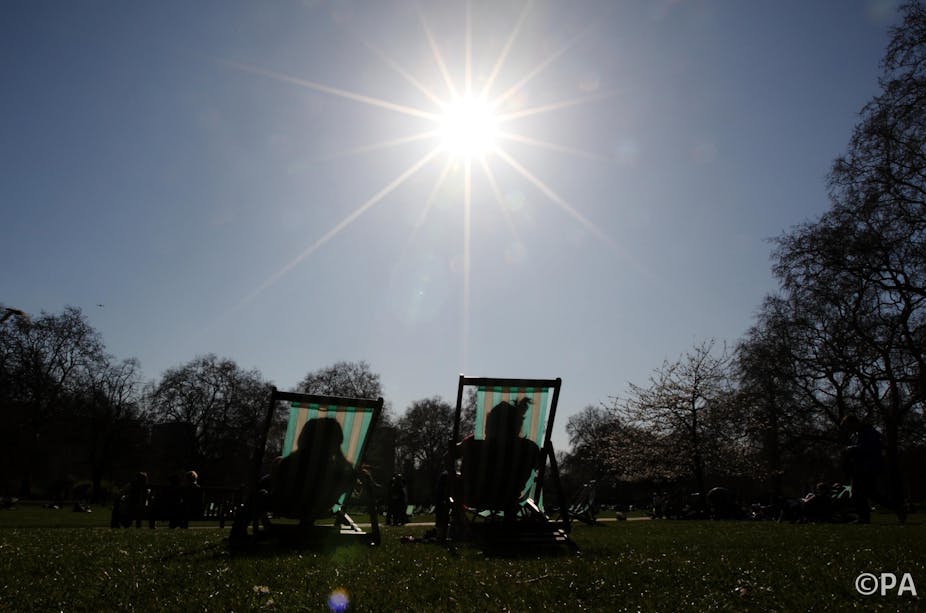We are now five years into the largest financial crisis in decades and yet, paradoxically, people don’t seem to be more unhappy than they were before. The UK ranked 10th of the countries surveyed for the Better Life Index, a major study of the best places to live and work, and measures of happiness and well-being are still firmly on the policy agenda. How can this be the case?
The distinction between measures of the economic health of society and the overall well-being of its population has been in place since the happiness agenda was first defined.
Bobby Kennedy, one early advocate, outlined the goals of a civilised society in 1968. He argued that it should not be enough merely to enhance the economy of the country but it was also necessary to enhance its well-being. The traditional measure of assessing economic performance, he said, counts all sorts of negatives from air pollution and jails, to nuclear weapons and environmental destruction. Kennedy said:
It measures neither our wit nor our courage, neither our wisdom nor our learning, neither our compassion nor our devotion to our country, it measures everything in short, except that which makes life worthwhile.
Since that declaration, the global economy has grown, despite occasional dips. The Depression of the 20s and 30s was a distant memory. And then came the banking collapse and deep recession that started at the end of 2007. A new austerity era began and continues. During the two decades preceding the crash, house prices rose dramatically in most developed countries, the world economy was growing at a fast rate, emerging markets and countries (for example China, India, Brazil, Russia) took centre stage, and materialism flourished.
Growing unhappy
But even during that growth period, evidence began to emerge from economists that, although people were materially better off in the developed and emerging world, their happiness was not growing at the same pace. Indeed, in many cases, it was in decline.
Research suggested that people had less job satisfaction, felt more stress at work and had less balance between their home and work life, even when their material standards had risen.
With the crash, the workplace changed dramatically. There were massive downsizings, less job security, high unemployment, less disposable income, and a reduction in living standards. This meant fewer people at work and those working having to spend longer hours there, suffering high levels of stress-related symptoms and illnesses.
A happy crash?
The irony is that during these last six years, even given these developments, happiness and well-being has become a major issue.
The former President of France, Nicolas Sarkozy, and Prime Minister David Cameron both extolled the virtues of Gross National Well-being, an alternative measure of economic success. The Bhutan Declaration, stating that the goal of a country should be to enhance the well-being and happiness of its population, was signed by 79 countries in the UN General Assembly, and the World Economic Forum acknowledged the importance of mental well-being by establishing a global agenda council to explore how it could be increased.
The Office of National Statistics now even measures societal well-being on a continuing basis, to inform policy and develop intervention strategies. This was on the back of the UK Office for Science developing a Foresight project on Mental Capital and Well-being, to introduce evidence-based policies on well-being in families, the workplace, in communities and in the ageing population.
Adapting to happiness
Employers have also embraced the happiness agenda as a bottom-line issue, as they struggle to attract and retain talent, in a culture that now focuses more on health and well-being initiatives as part of an overall human resource strategy.
Is the happiness movement and well-being agenda a temporary phenomena? Given the materialism of the previous two decades has not meant inner peace and rewarding relationships, as people strived for “things” rather than contentment, perhaps the crash made ordinary people, employers, and leaders throughout society reflect on what else life could be about.
If one looks at many of the happiness indices, people tend to put money and material goods further down the well-being hierarchy, emphasising instead the vital importance of “meaningful relationships” and “health”. It could be that the economic crisis has enabled us all to take some time out to get our life goals back into perspective.

